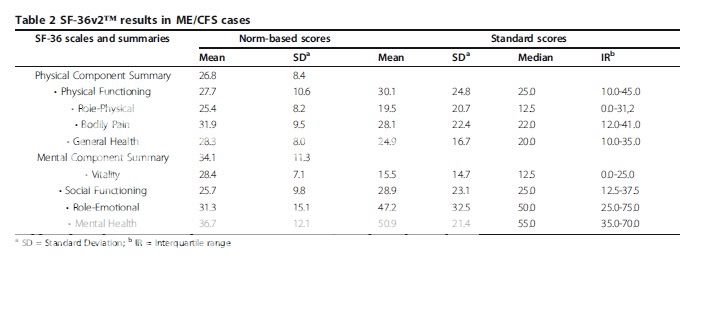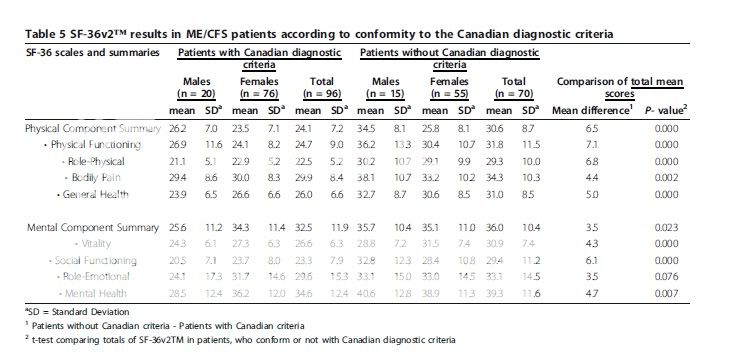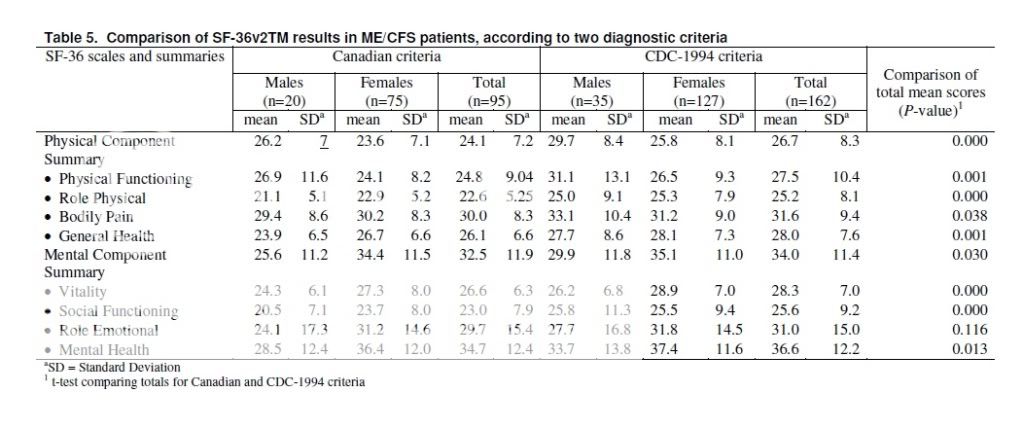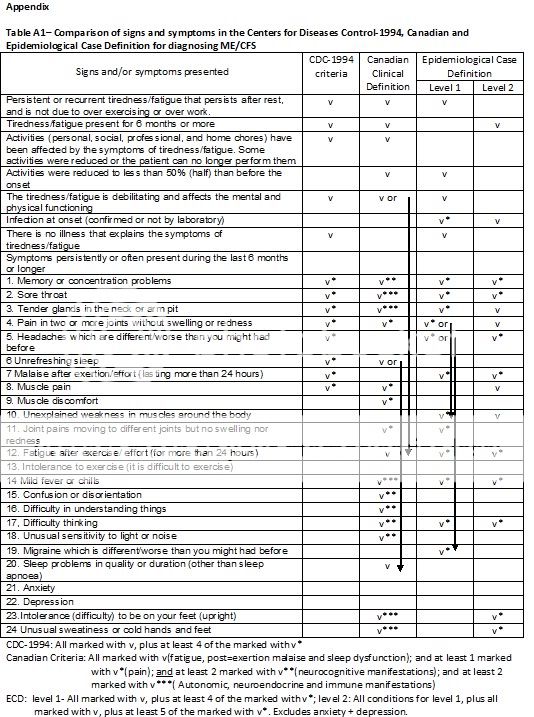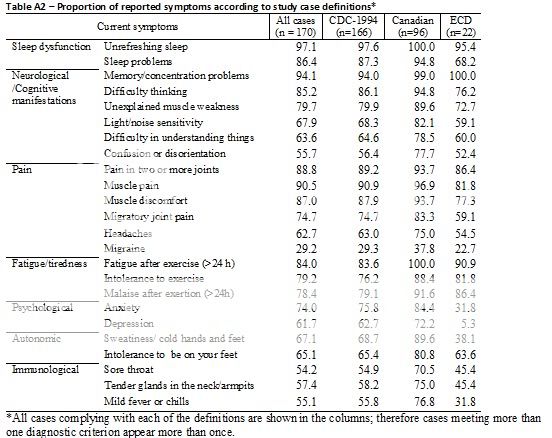Free full text at: http://www.biomedcentral.com/1471-2458/11/402
* I gave each sentence its own paragraphThe functional status and well being of people with myalgic encephalomyelitis/chronic fatigue syndrome and their carers.
BMC Public Health. 2011 May 27;11(1):402. [Epub ahead of print]
Nacul LC, Lacerda EM, Campion P, Pheby D, Drachler MD, Leite JC, Poland F, Howe A, Fayyaz S, Molokhia M.
ABSTRACT*:
BACKGROUND:
Diagnosis of myalgic encephalomyelitis/chronic fatigue syndrome or ME/CFS is largely based on clinical history, and exclusion of identifiable causes of chronic fatigue.
Characterization of cases and the impact of interventions have been limited due to clinical heterogeneity and a lack of reliable biomarkers for diagnosis and outcome measures.
People with ME/CFS (PWME) often report high levels of disability, which are difficult to measure objectively.
The well being of family members and those who care for PWME are also likely to be affected.
This study aimed to investigate the functional status and well being of PWME and their lay carers, and to compare them with people with other chronic conditions.
METHODS:
We used a cross sectional design to study 170 people aged between 18 and 64 years with well characterized ME/CFS, and 44 carers, using SF-36 v2TM.
Mean physical and mental domains scores (scales and component summaries) were calculated and compared internally and externally with reference standards for the general population and for population groups with 10 chronic diseases.
RESULTS:
SF-36 scores in PWME were significantly reduced, especially within the physical domain (mean norm-based Physical Component Summary (PCS) score = 26.8), but also within the mental domain (mean norm-based score for Mental Component Summary (MCS) = 34.1).
The lowest and highest scale scores were for 'Role-Physical' (mean= 25.4) and 'Mental Health' (mean=36.7) respectively.
All scores were in general lower than those for the general population and diseased-specific norms for other diseases.
Carers of those with ME/CFS tended to have low scores in relation to population norms, particularly within the mental domain (45.5).
CONCLUSIONS:
ME/CFS is disabling and has a greater impact on functional status and well being than other chronic diseases such as cancer.
The emotional burden of ME/CFS is felt by lay carers as well as by people with ME/CFS.
We suggest the use of generic instruments such as SF-36, in combination of other objective outcome measurements, to describe patients and assess treatments.
PMID: 21619607 [PubMed - as supplied by publisher]

